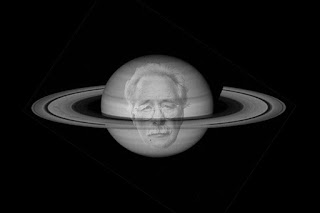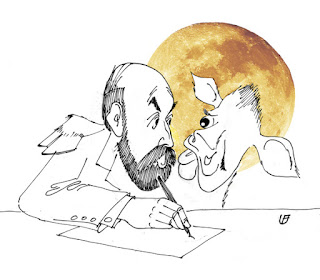Word of the Month: Index
Persil was the first commercially available "self-activated" laundry detergent (i.e. a cleaner containing both soap and bleach). It was introduced in Germany in 1907 and has remained popular to the present day. The name derives from two of its original ingredients, sodium perborate and silicate. [Source] The text of the vintage poster on the left means in English "For the love of laundry".
A Schein, in this context, is a certificate, and a Persilschein is a document confirming that somebody is "clean" in the sense that there is nothing in the person's past to disqualify him or her from pursuing a career or occupying a position of influence in a certain field. The term is often used ironically, even sarcastically, when there are indications that the certificate has been obtained by means that are not entirely above-board.
There is a reason for this connotation. People who remember the fifties in Germany or know her post-war history still associate the term with the denazification program, efforts initiated by the occupying powers to rid the German bureaucracy and professions of former Nazis and war criminals. A Persilschein obtained under the program was a document confirming that one had never committed a war crime, was not a member of the Nazi party or, at worst, a fellow-traveller. The program was plagued from the start by (i) inconsistencies in its administration across the occupation zones and (ii) a lack of enthusiasm for it on the part of the Germans. As a result, quite a few people got their Persilschein undeservedly.
As to Persil, the detergent, it's now sold in many countries, including the US, in spite of the fact that the name is not always easy to pronounce for non-German speakers. In addition, persil means "parsley" in French!
Presence Out of Context/Underworld
1 week ago








